The Ideological Elephant in the NCTB Textbooks

The newly introduced textbooks for Grades 1, 6 and 7, prepared by the National Curriculum and Textbook Board (NCTB), have created quite a stir. The issues are more than the presence of some glaring oversights that allowed typos to creep into the texts. Instances of plagiarism in science textbooks have been traced, and the editors have already apologised for their scholarly negligence. The use of Google Translate to change a source text into Bangla for writing sections of textbooks is an event of scandalous proportions, to say the least. The involvement of some high-profile writers in such a shoddy job of academic thievery has stigmatised the entire process.
Some of the controversies are also ideological in nature.
I scanned through the Science, and History and Social Sciences textbooks to understand the nature of the "ideological" controversy. The education minister has already told a press conference that these books are pilot versions, and after receiving feedback from stakeholders and correcting factual and typographic errors, the final versions would be made available.
Questions may be asked about why these pilot versions were printed then. It would have been much easier and less expensive to make such amendments in soft copies. I guess the answers to such queries would have exposed the myth of internet penetration in our country, and the shortage of digital devices.
Before I address the elephant in the room: the embedded ideological issues in texts meant for an adolescent audience in their formative years, let me commend the writers and NCTB for adopting a learner-centric narrative tone. In science textbooks, the applied section (exercise book) complements the investigative study quite nicely. The books are rich in content and cover extensive areas, including some contemporary issues of climate change and sustainability.
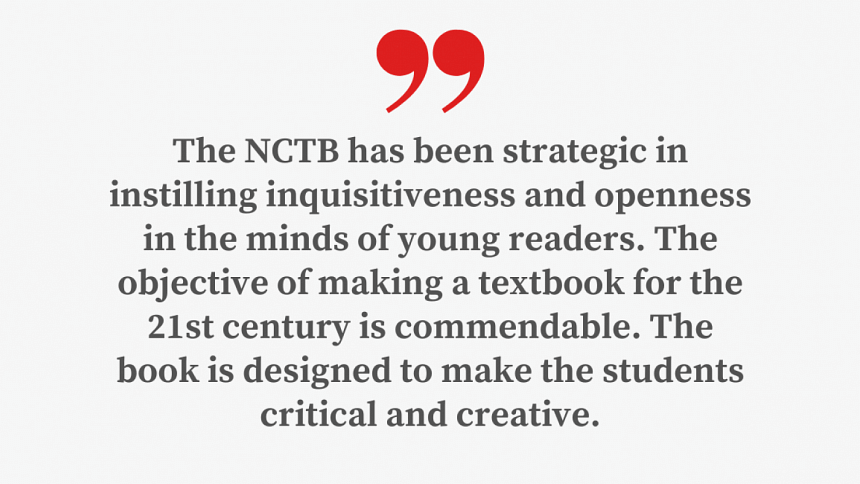
However, the extent of the topics covered in these books makes me worry whether students who are 11 to 13 years old will be able to grasp so many ideas in one academic year. Since this is a pilot version, I would suggest that the lessons are tried out with detailed lesson plans with sample groups before being finalised. Whether a 140-page plus book packed with information can be covered in 10 months is something that needs to be tested and validated.
Critics have found fault with the way archaeological history has been presented. They think that the books have given more focus on pre-history, and the lack of attention on the Muslim and British eras, thereby, does not reflect the identity formation of the majority in a predominantly Muslim country.
The Class 7 book randomly starts with images of friends of our Liberation War, and ends with an image of Bangladeshi refugees taking shelter in India. Yet, the first chapter deals with the early period of South Asian urbanism, while locating Indus cities in their larger regional landscape. The picture of Indira Gandhi has been enlarged, deservedly so. But the out-of-context placement and highlighting of the photo make the issue unnecessarily problematic for a textbook prepared by our national curriculum board. The distribution of the topic seems lopsided, as the book cursorily refers to some architectures and mosques to come to an abrupt end about the fusion of cultures in the region.
The NCTB earlier tried to bring changes to the textbooks in 2012, but was forced to omit some major sections as they were objected to by certain Islamic groups. The internet barometer suggests that a similar backlash is brewing. Already, there have been objections raised to the supposed inclusion of the theory of evolution. Critics are claiming that the NCTB textbook has suggested humanity evolved from apes, which contradicts the origin of man found in organised religion.
In a press release, the NCTB clarified its position against various propaganda. For instance, one of the narrators in the text says, "Many claim that man has come from monkeys. It's wrong." The text then goes on to exclaim the branching out of species, and includes an interesting side story on Lucy, a fossil of one human ancestor that dates back to 3.2 million years.
Already, claims are being made that the Darwinian theory of evolution should be dropped from the syllabi. There are many Islamic scholars today who have given ample logic to show that scientific views of origin can only solidify religious views. Holding on to a traditional view, without being aware of evolution, which literally means change over time, will fossilise our education. Hamza Yusuf is one such scholar, who uses the lens of al-Ghazālī to reach an alignment between Islam and Neo-Darwinian evolution. In a lecture, Hamza Yusuf says that it is important for Muslims to acquire the symbolic logic of the West to engage with their ideas.
I think the NCTB has been strategic in instilling inquisitiveness and openness in the minds of young readers. The objective of making a textbook for the 21st century is commendable. The book is designed to make the students critical and creative. Without creativity and a critical outlook, our young generations will fail to become global citizens.
However, the noble purpose of the textbook has been diluted by some fringe agendas. These could be products of some over-enthusiastic scholars, politicians or bureaucrats. The books will serve a greater purpose if it assumes a more neutral and objective tone. Many of the images and additional information can be made available online for further reading.
Overall, I think these textbooks are in the right direction of making students lifelong learners by equipping them with the tools to ask questions. Stylistically, the printing needs to be error-free. And the method needs tweaking, precisely because of the controversies it has espoused already.
Dr Shamsad Mortuza is a professor of English at Dhaka University.

 For all latest news, follow The Daily Star's Google News channel.
For all latest news, follow The Daily Star's Google News channel. 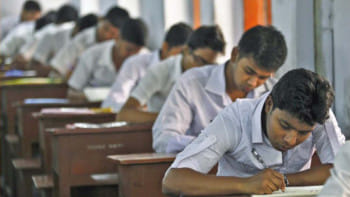



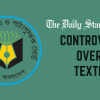
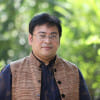
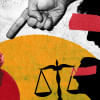

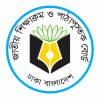


Comments